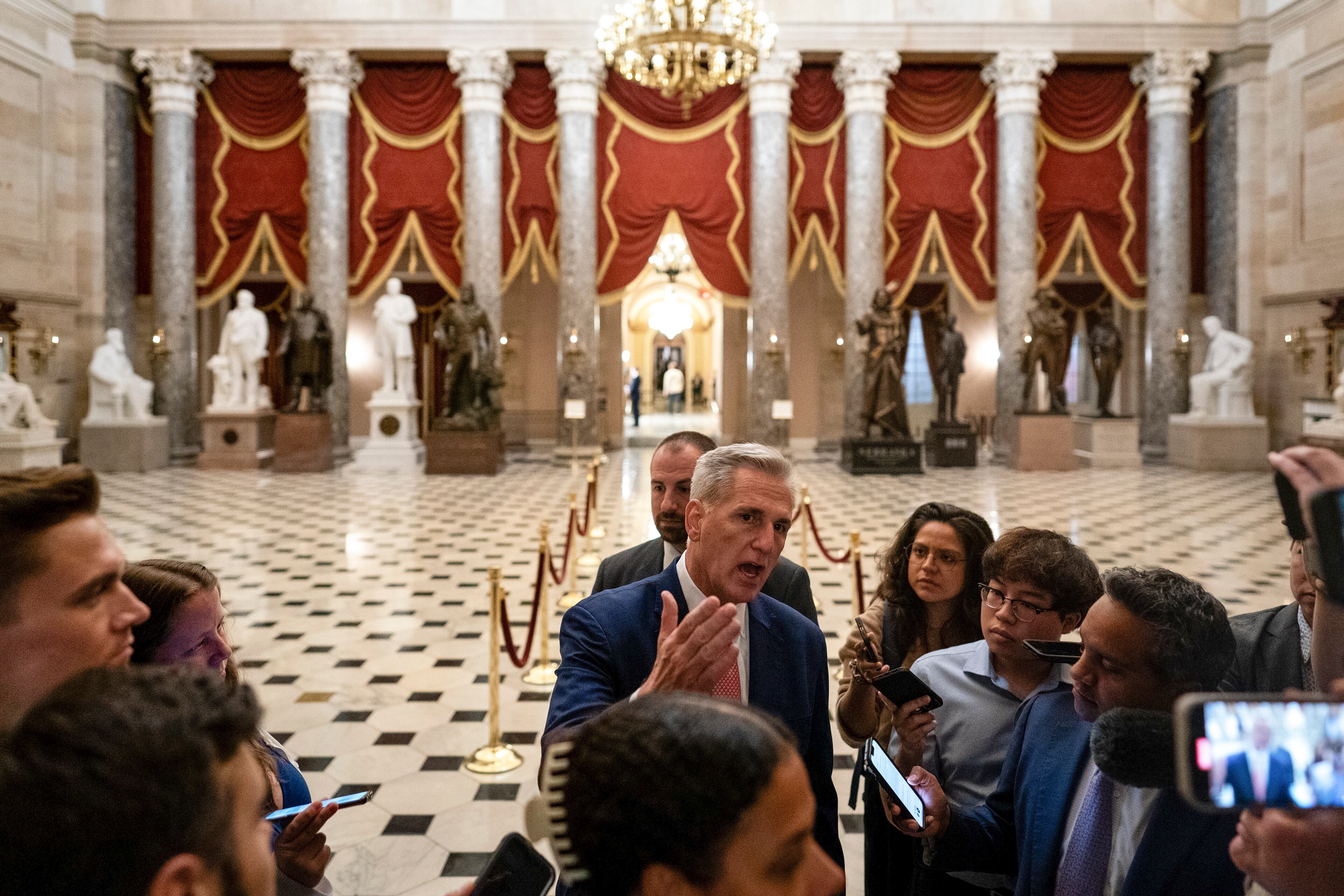Treasury secretary visits Georgia, warns of government shutdown fallout

SAVANNAH — On the eve of a possible federal government shutdown, U.S. Treasury Secretary Janet Yellen gave an evaluation of the potential impact on the American economy, using words such as “dangerous” and “needless.”
“It is an unnecessary wound we are inflicting on ourselves,” she said.
Yellen made the remarks Friday afternoon as part of her visit to the Port of Savannah. She toured the Garden City Terminal along with Georgia Ports Authority officials and Savannah Mayor Van Johnson, and she touted both the authority’s value to the U.S. economy and the Biden administration’s investments in infrastructure and clean energy.
Yet, the looming lapse in federal funding — the current year’s spending bills expire at 12:01 a.m. Sunday — was top of mind for the nation’s chief financial officer. The Treasury Department pays the government’s bills, and Yellen is arguably America’s foremost economic expert. She led the President’s Council of Economic Advisers during the Clinton administration and served 17 years with the Federal Reserve Board, including four years as its chair.
Yellen addressed the shutdown early in her prepared remarks, delivered on a container ship dock, and twice more during a press conference near the visit’s conclusion.

She acknowledged the Treasury Department is modeling the effects of a shutdown. She referenced estimates from the President’s Council of Economic Advisers that predict a loss of 0.2% in economic growth for each week of the shutdown.
“A short shutdown would impact many individual people’s lives negatively, but at the aggregate level, probably wouldn’t have a significant effect,” she said. “But if it lasts for a long time, we would see a larger effect.”
An analysis of two mid-1990s shutdowns by the White House’s Office of Management and Budget estimated the price tag at more than $2 billion in today’s dollars.
The report cited costs such as paying federal workers for thousands of hours preparing for and recovering from a shutdown and compensating them retroactively for the time they were furloughed, which is typically part of any post-shutdown legislative deal.
U.S. Rep. Buddy Carter, R-Pooler, summarized the folly of government shutdowns in a newsletter sent to constituents earlier this month.
“Closing down government agencies just to reopen them within days or weeks is practically flushing money down the toilet, which we can ill-afford to do,” Carter wrote.
On Friday at the Port of Savannah, Yellen implored House Republicans to “do their jobs and move quickly to keep the government open.” She criticized the small group of GOP hard-liners who have blocked passage of more than half the funding bills. That group includes U.S. Rep. Marjorie Taylor Greene, R-Rome.
“The failure of House Republicans to act will hurt American families and cause economic headwinds that will undermine the progress we’re making,” Yellen said.



